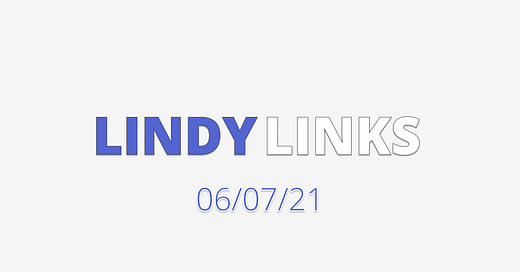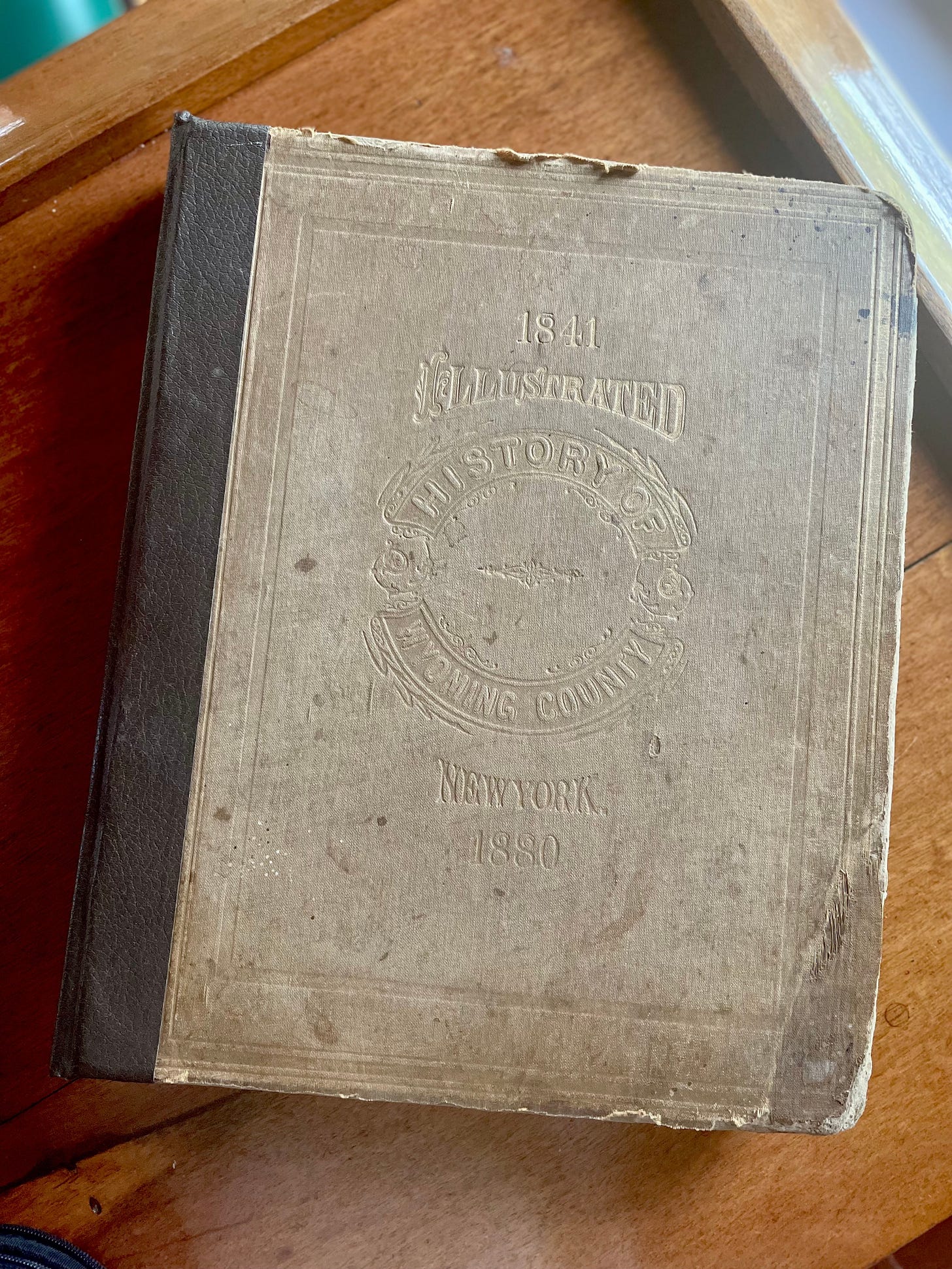Hi everyone,
Writing to you from Buffalo, NY.
My family was recently gifted a very Lindy book that describes the history of our hometown. Originally written in the 1800s, it has information that doesn’t exist anywhere else. The book is filled with stories.
It talks about the settlers who traveled hundreds of miles to build their lives and start new communities. The author describes the local geography and peaceful relationships with the Native American population. Best of all, each page includes hand-drawn illustrations of early pioneer dwellings. Reading it was a wonderful reminder of the value of long-term thinking and what will seem important hundreds of years from now.
From me
In defense of boredom: One of the most valuable skills to develop as a knowledge worker is the ability to focus. I write about boredom, and how doing nothing can be the best way to get something done.
Cryptovenetians are an NFT pixel-art collection based on real people from the local scene in Venice, California. This subscribers-only post gives a behind-the-scenes look at the project, including why we’re generating the images on-chain instead of using a distributed file storage service like IPFS. If you want to hear more about the process of creating and distributing an NFT you can follow along by subscribing. If you have a specific question you can email me and I’ll do my best to answer.
From the web
Some places, like Florence during the Italian Renaissance, are home to an extraordinary talent density. Although only a few tens of thousands of people lived in Florence at the time, it gave rise to Leonardo and Michaelangelo, two artists who defined the genre.
Similarly, Vienna in the late 19th century was a hotbed of talent. Mahler (music), Mach (physics), Hayek (economics), Freud (psychology), and Wittgenstein (philosophy) all came from a very small area — and they all knew each other!
The Scottish book is another example of how interconnected communities are better at coming up with solutions than lone geniuses. The book was a shared resource that mathematicians would use to pose problems and collaborate on solutions.
Originally, the mathematicians who gathered at the cafe would write down the problems and equations directly on the cafe's marble table tops, but these would be erased at the end of each day, and so the record of the preceding discussions would be lost. The idea for the book was most likely originally suggested by Stefan Banach's wife, Łucja Banach. Stefan or Łucja Banach purchased a large notebook and left it with the proprietor of the cafe.
If you’re looking for a modern version of the Scottish Book, check out Fermat’s Library, a website that lets users scribble notes in the margins of popular scientific papers.
Originally published: 1920; Lindy score: 2120Yale publishes undergraduate courses online. If you’re looking for top-tier education content available for free, you could do worse than by starting with this collection. Yale is especially well known for its Liberal Arts curriculum.
If you’re looking for other top-notch educational content I recommend checking out OpenLearn, MIT Open Courseware, Harvard Open Learning, or Stanford Online.
Originally published: N/ABeing able to reason well is a prerequisite for success. This collection of essays, called “The Codex”, is a friendly and fun introduction to rationality written by Scott Alexander.
I really can’t recommend it enough. If you’re looking for a fun project, try reading each essay in The Codex and writing a companion essay that expands on his arguments. I would gladly read a limited series or subscribe to a newsletter that published similar content.
Originally published: 2010; Lindy score: 2032have a great week,
phil




